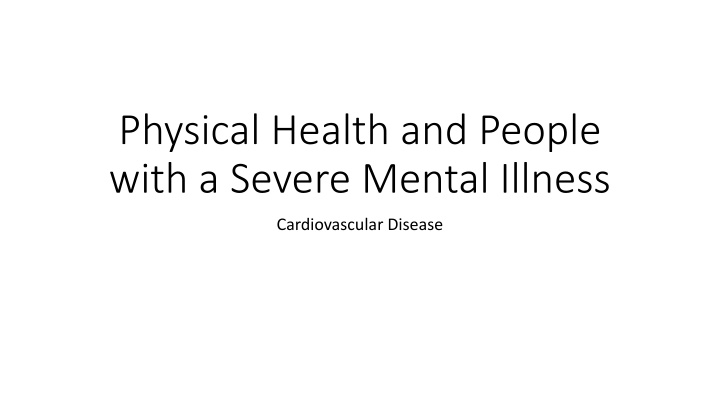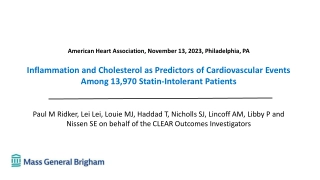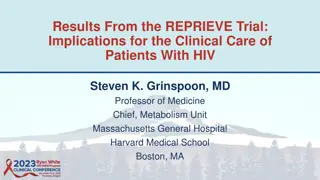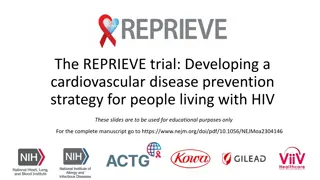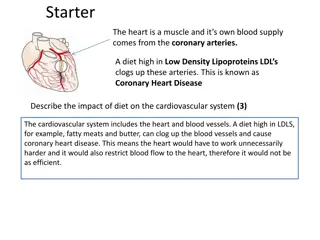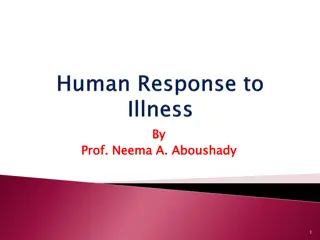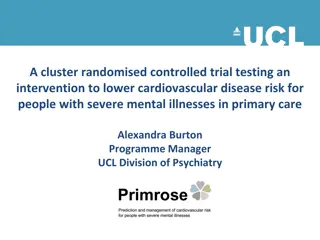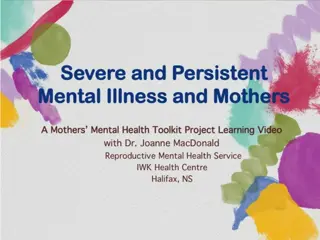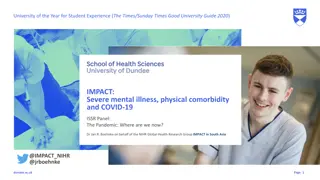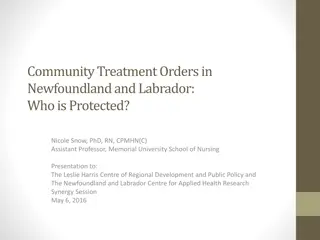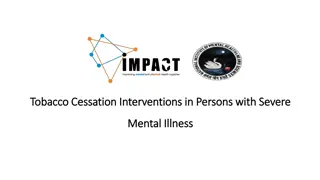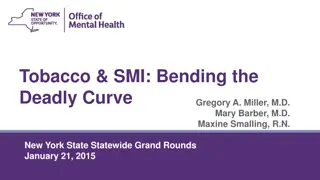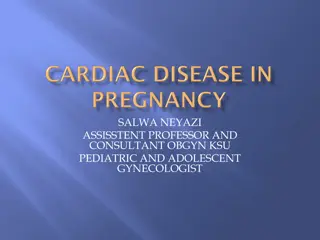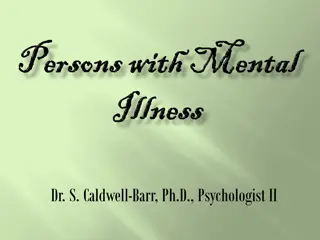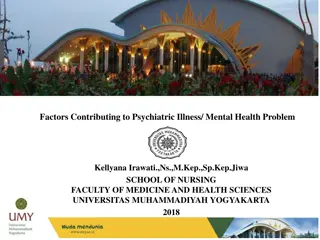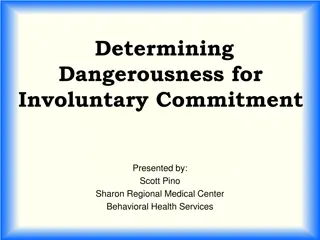Managing Cardiovascular Risk in People with Severe Mental Illness
Address the increased risks of cardiovascular disease in individuals with severe mental illness like schizophrenia. Learn about risk factors, clinical considerations, and appropriate interventions to manage cardiovascular health effectively.
Download Presentation

Please find below an Image/Link to download the presentation.
The content on the website is provided AS IS for your information and personal use only. It may not be sold, licensed, or shared on other websites without obtaining consent from the author.If you encounter any issues during the download, it is possible that the publisher has removed the file from their server.
You are allowed to download the files provided on this website for personal or commercial use, subject to the condition that they are used lawfully. All files are the property of their respective owners.
The content on the website is provided AS IS for your information and personal use only. It may not be sold, licensed, or shared on other websites without obtaining consent from the author.
E N D
Presentation Transcript
Physical Health and People with a Severe Mental Illness Cardiovascular Disease
Learning Objectives Clinical Cardiovascular disease is more common Diabetes is a significant risk factor Smoking is a significant risk factor Lifestyle factors are significant Comorbidity is complex and cardiovascular risk significantly elevated Organizational Communication with the mental health team is essential Sharing clinical information is essential Primary care team members are essential nursing, care coordination, dietitian, community care worker (when available)
Amir Clinical Background: Amir is a 38 year old man PMH: Schizophrenia diagnosed 22 years ago Nil else significant Family History: Both parents have diabetes Smoking History: recently stopped smoking Social History: no record of employment status
Amir Issues for the Clinician Cardiovascular disease is more common Cardiovascular risk score assessment is needed Lifestyle factors will need considering Fact Sheet People with severe mental illness and CVD are more likely to Have diabetes Be overweight Smoke Have dyslipidemia Have erectile dysfunction and hyperprolactinemia
Amir The reason for the consultation: Amir was recently discharged following a five month admission for schizophrenia. During this admission his medication was changed to clozapine Following discharge he developed diabetes He stopped smoking, and developed clozapine toxicity as the dose of the medication had not been reduced He is attending today, for his first diabetic review
Amir The consultation (path results): BP: 150/95 BMI: 44 Smoke: stopped smoking HbA1c: 80mmol/mol (9.5%) Cholesterol: 7.5 mmol/L (290 mg/dL) HDL Chol: 0.8 mmol/L (30.9 mg/dL) Renal function: eGFR 70; Prolactin: 3,256 mIU/L (normal range <450 mIU/L for men)
Amir Issues for the Clinician Cardiovascular risk score QRISK2: 27% Which are the most appropriate interventions to offer? What would be the consequence of stopping clozapine? Intervention for elevated prolactin? Communication with the mental health team Fact Sheet Antipsychotic medication induces risk factors for cardiovascular disease. Antipsychotic medication is also thrombophilic increasing the likelihood of DVT and PE Renal failure and erectile dysfunction are independent risk factors for cardiovascular disease
Learning Objectives Clinical Cardiovascular disease is more common Diabetes is a significant risk factor Smoking is a significant risk factor Lifestyle factors are significant Comorbidity is complex and cardiovascular risk significantly elevated Organizational Communication with the mental health team is essential Sharing clinical information is essential Primary care team members are essential nursing, care coordination, dietitian, community care worker (when available)
